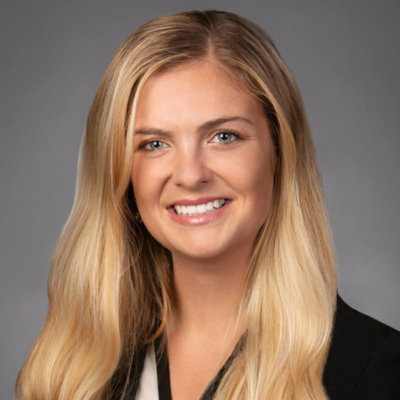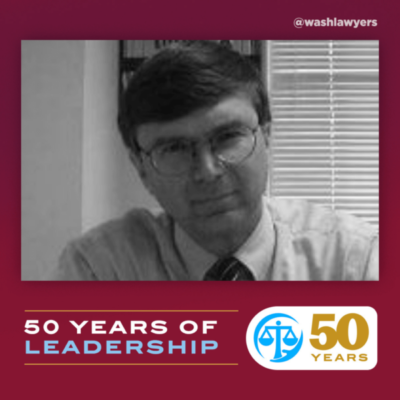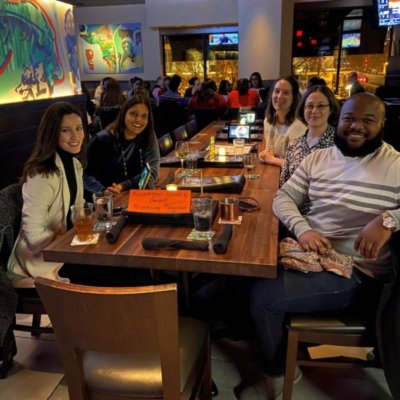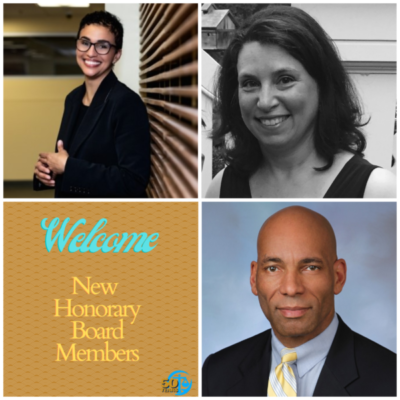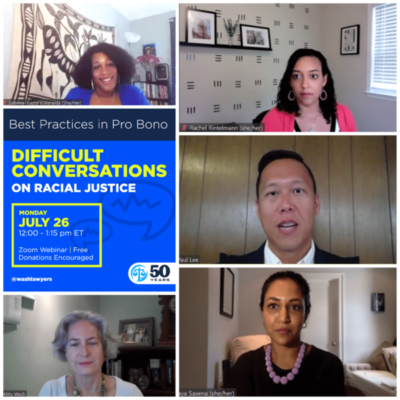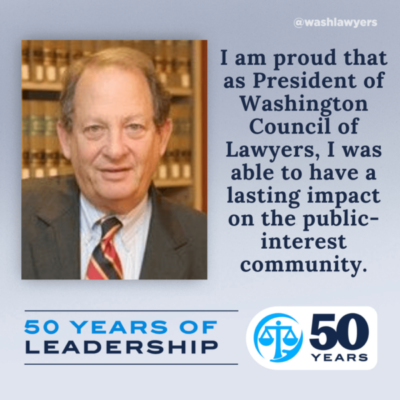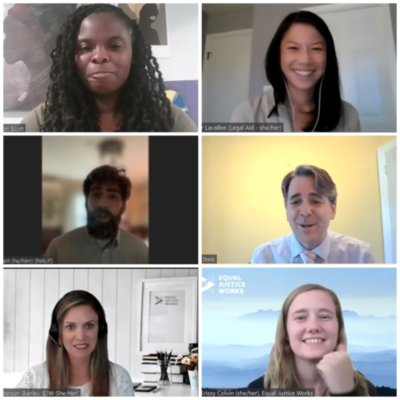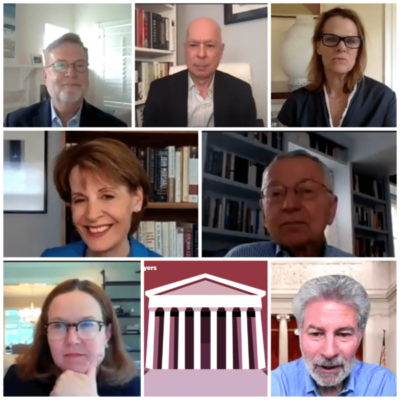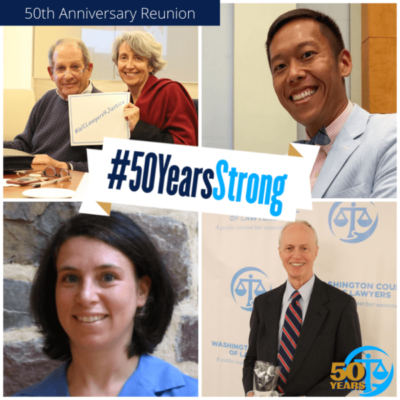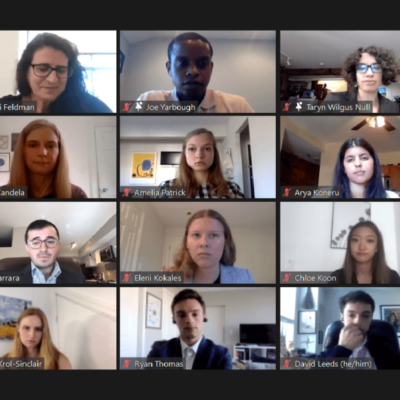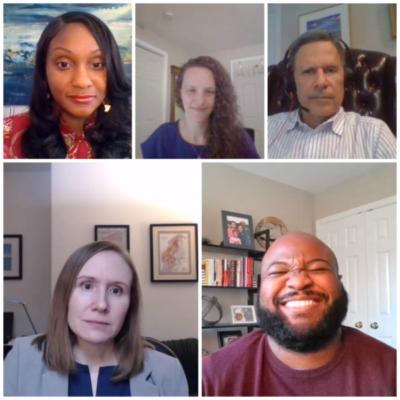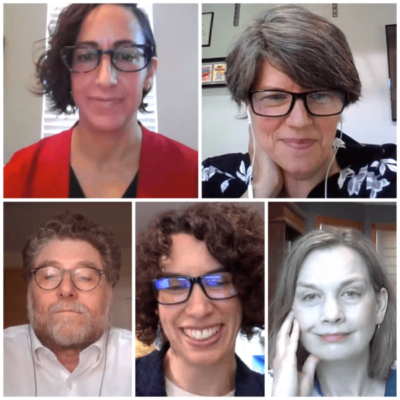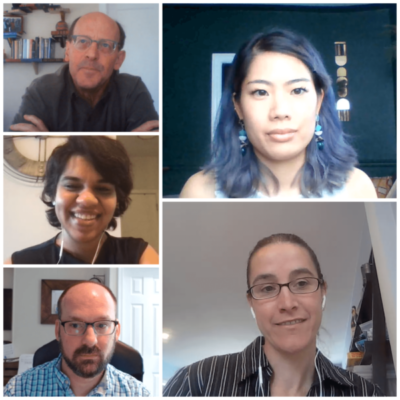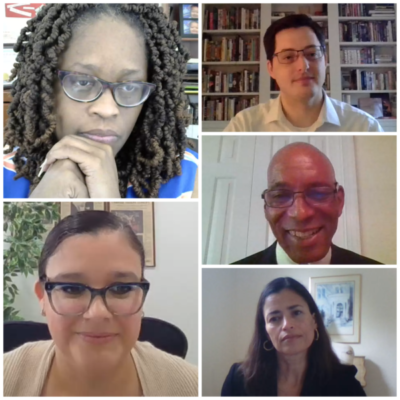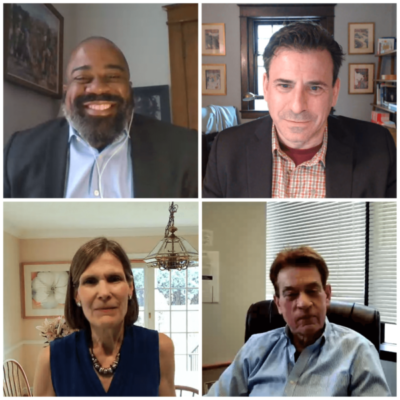We are now accepting nominations for our 2021 Legal Services Award and Government Pro Bono Award. Each year at our Awards Ceremony, we recognize the extraordinary work of some of the District’s most dedicated public-interest and government pro bono lawyers. Our 2021 Awards Ceremony will take place on Thursday, December 2. Our Legal Services Award recognizes a dynamic legal-services lawyer who represents low-income clients, works to improve access to justice, or thinks creatively to solve difficult legal problems. Our Government Pro Bono Award commends a dedicated government lawyer who also volunteers time to organize pro bono efforts or represent low-income clients. Nomination materials are due by 5 pm ET on Monday, October 4, 2021. The awards criteria and nomination instructions are below. Legal Services Award Our Legal Services Award recognizes the work of lawyers who serve in the public interest community: the staff attorneys who provide outstanding representation to low-income individuals day in and day out. These may be rising stars or unsung heroes – but they demonstrate a passion for helping people and a hunger for increasing access to justice. We’re looking for nominees with one or more of the following characteristics: An advocate who has not previously been widely, publicly recognized for her or his work and whose work benefits low-income or otherwise marginalized clients in the Greater DC Metro Region; An individual who supports the DC public-interest community in improving the access to justice for those who cannot afford an attorney; An advocate who has endeavored to bring together the public-interest, pro bono, and government legal communities to improve the quality and availability of free legal services for those in need; and Someone who has gone above and beyond the normal requirements of their job to assist persons in need or has demonstrated outside-the-box thinking about how to resolve difficult legal issues. Past Winners: 2020 Allison Miles-Lee, Bread for the City 2019 Tricia Monroe, The Legal Aid Society for the District of Columbia 2018 Lindsy Miles-Hare, Ayuda 2017 Tracy Goodman, Children’s Law Center 2016: Thomas “Skip” Mark, D.C. Bar Pro Bono Center 2015: Rebecca Lindhurst, Bread for the City 2014: Jodi Feldman, The Legal Aid Society for the District of Columbia Government Pro Bono Award The Government Pro Bono Award highlights the important (and often overlooked) pro bono contributions made by government lawyers. Pro bono service can take many forms and is not limited to direct legal representation or litigation. Past recipients have promoted access to justice in a variety of ways and in many different substantive practice areas. The Government Pro Bono Award recipient will be a government attorney who has made significant pro bono contributions. The pro bono work performed may include, but is not limited to activities such as: Involvement in establishing or implementing an agency pro bono program; Increasing the level of pro bono service by agency attorneys through promotion or facilitation of pro bono opportunities; Mentoring or training agency lawyers handling pro bono matters, litigating cases or providing non-litigation legal services to low income people or entities; or Participating regularly in pro bono clinics. Please note that the above lists of pro bono activities are not exhaustive. We gladly will consider nominations of attorneys who have performed other kinds of pro bono service. Past Winners: 2020: Jo Bahn, Federal Deposit Insurance Corporation 2019 Marissa Schnaith, U.S. Department of Labor 2018 Catalina Martinez, U.S. Small Business Administration 2017 Deborah Birnbaum, U.S. Department of Labor 2016 Katrina Rouse, Antitrust Division, U.S. Department of Justice 2015 Kathryn Legomsky, U.S. Department of Housing & Urban Development 2014 John Bowers, Civil Division, U.S. Department of Justice 2013 Jay Owen, Antitrust Division, U.S. Department of Justice 2012 Edward Eliasberg, Antitrust Division, U.S. Department of Justice 2011 Karen Shrimp, U.S. Securities and Exchange Commission 2010 John Warshawsky, Civil Division, U.S. Department of Justice 2009 Sean Keveney, Civil Rights Division, U.S. Department of Justice 2008 Paul Kendall, Federal Bureau of Prisons, U.S. Department of Justice 2007 James Yoon, Antitrust Division, U.S. Department of Justice 2006 Mark Pletcher, Antitrust Division, U.S. Department of Justice 2005 Julie Abbate, Civil Rights Division, U.S. Department of Justice 2004 Laura Klein, Pro Bono Program, U.S. Department of Justice 2003 Claire McGuire, Federal Deposit Insurance Corporation & Department of Treasury Nomination Instructions Nominations should describe the nominee’s relevant professional activities, including (1) a description of the legal services and/or other efforts upon which the nomination is based, (2) an explanation of the impact of that work on clients, other advocates, and/or others and (3) the time period covered by the activities. Nomination materials should be no longer than 6 pages in length, including the nomination, resume, and any other supporting documents, such as letters of recommendation. Nomination materials should be submitted to info@wclaywers.org. If you have any questions, please contact Nancy Lopez at 202.942.5063. Deadline All nominations must be received by 5:00 pm ET on Monday, October 4. Learn more about the Awards Ceremony and past award winners.







